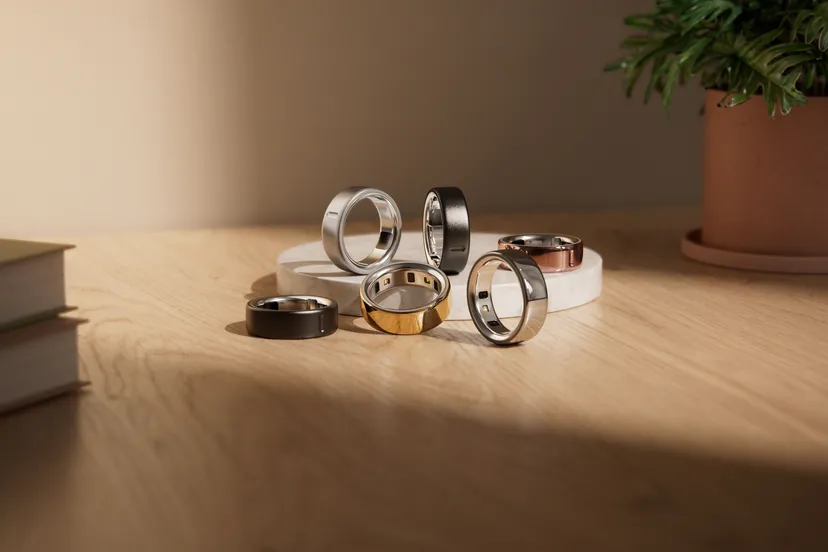
Oura is giving its popular smart ring and app a substantial makeover. The company just announced the $349 Oura Ring 4, which will feature a slimmer design, improved accuracy, and more sizes. Starting today, the Oura app will also be getting a complete redesign to better organize the swath of new features introduced over the past few months.
At a glance, the Oura Ring 4 doesn’t look too different from the Gen 3. However, the new ring will be fully made from titanium. (The previous ring had an epoxy interior.) All the rings will also be completely round, like the current Horizon models, with no flat edge. Perhaps most notably, the sensors no longer have protruding dome-shaped covers. Instead, they’re recessed for a flatter, more comfortable profile.
The bigger update, however, comes from software. Oura says its new algorithm helps solve a major problem with smart rings — the fact that everyone’s fingers are different and smart rings can move out of alignment during the day. That can mean sensors aren’t pulling data from the optimal place, which leads to gaps in data. To solve that, the new algorithm increases the number of signal pathways from eight to 18. Supposedly, that allows it to pick which signal is best at a given time.
Citing an external study, Oura says the new algorithm results in a 120 percent increase in signal quality and a 30 percent bump in accuracy for blood oxygen tracking. It also claims the new algorithm reduces gaps in daytime and nighttime heart rate readings by 7 and 31 percent, respectively. On top of better accuracy, the company says the new algorithm also improves battery life to up to eight days, depending on the size of the ring. (With smart rings, larger sizes tend to have better battery life.) Of course, these are claims from controlled studies and testing scenarios. We’ll have to see how they translate in real-life usage.
Notably, Oura is also expanding its size range. You’ll now be able to buy the ring in sizes 4 to 15. Previously, the smart ring was limited to sizes 6 to 13. Part of this is because Oura says its demographic has shifted to majority female, with women in their 20s as the fastest growing segment. Overall, expanding its size range is a good thing.
As for the app, Oura users may have noticed it’s become increasingly cluttered over the past few months as the company added new features for stress tracking, reproductive health, heart health, and an experimental Labs beta program. To address that, the redesigned app will now have three sections: Today, Vitals, and My Health. The Today tab is a dynamic summary of your biometrics, depending on the time and a user’s health goals. Vitals will allow members to dive deeper into metrics and scores, while the My Health tab will focus on longer-term trends.
Aside from the redesign, Oura is also rolling out a revamped Daytime Stress metric. It’s also adding automatic activity detection for 40 different activity types. For reproductive health, Oura is also adding fertile window predictions for people who are trying to conceive. It underscored that the feature is not meant to be used as a contraceptive and pointed to its partnership with Natural Cycles for people who want that. Lastly, Oura says it’s finally bringing its Labs program over to Android.
The Oura Ring 4 will start at $349, is HSA and FSA eligible, and will ship starting October 15th. Folks may be unhappy to hear that there’s a $50 bump in the starting price, but Oura Ring Gen 3 units will still be available until inventory runs out. Oura also confirmed that its $6 monthly / $70 annual subscription will not be increasing.
























